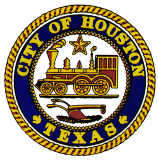The Texas Supreme Court on Friday struck down part of Houston’s revenue cap, creating the possibility that the city may have to comply with an even more stringent cap in the future.
Elected officials in Houston long have blamed the city’s revenue cap for lagging services, keeping more than $1.4 billion from the city’s coffers since 2014. If Houston were forced to implement the stricter cap, current and former city officials have argued it would be “financially devastating.
“The ruling in the 19-year-old legal dispute stems from the 2004 municipal elections, when Houston voters passed two separate caps on the city’s revenues. Anti-tax activists proposed a measure that would cap increases in total city revenues to the sum of population growth and inflation. That initiative became known as Proposition 2.
Then-Mayor Bill White, in response, offered an alternative: The city would limit annual increases in property tax revenue to the sum of population growth and inflation, or 4.5 percent, whichever is lower. City Council put that measure on the ballot, known as Proposition 1, with language saying it would preempt Proposition 2 if it got more votes. Both caps allow the city to ask for voters’ approval to exceed their respective limits.
Houston voters passed both measures, and supported Prop 1 by a greater margin, 64 percent to 56 percent for Prop 2. The city implemented the White administration’s version and came up against the cap for the first time in 2014. It has cut its property tax rate eight times in the last nine years to comply with that measure.
“There is an impact on the services the city can deliver in the general fund with Prop 1,” said former Mayor Annise Parker, who served as city controller when the ballot measures passed. “It would be financially devastating to implement Prop 2.”
[…]
The city’s charter has a provision for when inconsistent amendments are adopted, saying “the amendment receiving the highest number of votes shall prevail.” The question for the trial court will be whether the two propositions are inconsistent.
“The trial court noted that aspects of the two amendments may be harmonized, but it did not undertake that effort because it gave effect to the primacy clause and disregarded Proposition 2 in its entirety,” Bland wrote.
Mayor Sylvester Turner’s office said the city has argued for nearly 20 years that they do conflict. He said Friday he is confident the trial court will agree, leaving the current cap in place.
“Houston has faithfully enforced one of the country’s most restrictive property tax revenue caps for almost two decades,” Turner said in a statement. “When Houston voters were presented with a choice of two competing caps, they clearly chose a restriction on property tax rates and revenue alone. I remain confident that the conclusion of this case will find the charter amendment revenue caps are inconsistent and apply only the limitations of Proposition 1 with which the City has faithfully complied — in addition to complying with the recently enacted State of Texas revenue cap.”
I couldn’t find anything in my archives relating to this lawsuit, so I have no idea what its history is. The city has prevailed in past litigation, but as with the neverending efforts to kill Obamacare the fringe lunatics who keep fighting this keep finding new ways to keep trying. I have no idea what happens next, but as I am waiting for news of a different Supreme Court ruling as I write this, I hope this is the worst news from any kind of Supreme Court we got on Friday afternoon. I’m going to go light a candle and toss some salt over my shoulder now.

